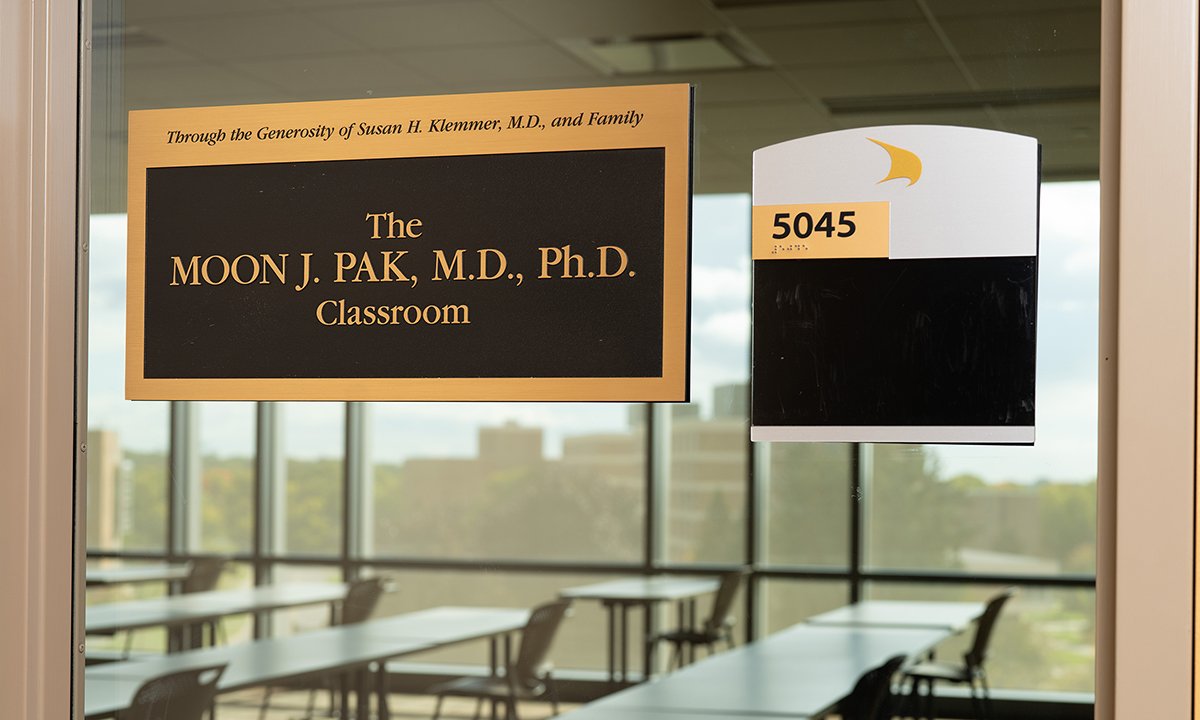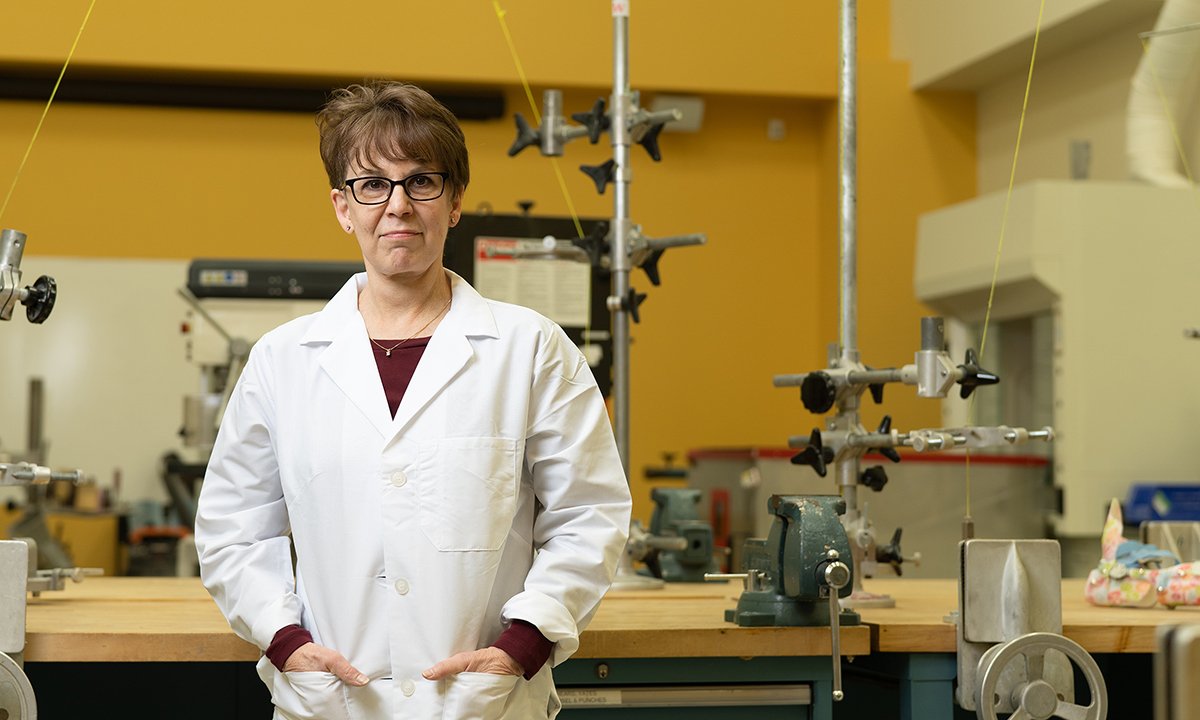Preserving Native American Heritage
SHS hosts Tara Maudrie, SHS graduate and former student of Dr. Mozhgon Rajaee, as a speaker during Native American Heritage Month events
November 2022 brought the first-ever Native American Heritage Month to Oakland University. Led by the Native American Advisory Committee, the series of events hosted by multiple schools across campus was a continuation of the efforts to make Oakland’s recent Native American Land Acknowledgement meaningful and impactful.
Mozhgon Rajaee, Ph.D., is a Coordinator and Associate Professor in the Department of Public and Environmental Wellness. In one of Dr. Rajaee's classes that addressed Native health, Tara Maudrie, undergraduate student at the time, informed her that this topic was not being covered well in many classes. This inspired Dr. Rajaee to begin collaborating with like-minded individuals to improve how Native American issues are discussed across campus, thus beginning her involvement with what ultimately became the Native American Advisory Committee. The Committee seeks to determine the best ways to live out Oakland University's Land Acknowledgement which dedicates an acre of land to Native Americans. “The land gifting is actually pretty radical,” says Dr. Rajaee. “It’s not just words - there is land and that’s actually a big deal when you talk about Native American history, heritage and culture because land was taken.” The Committee also strives to make Oakland a more welcoming place for Indigenous students and faculty/staff.
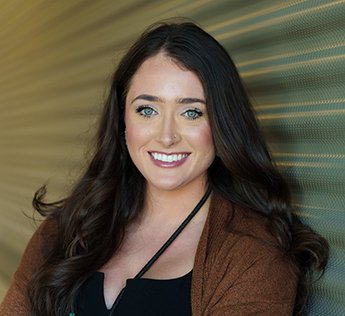 |
As part of educating and raising awareness during Native American Heritage Month, the School of Health Sciences was pleased to welcome back Tara Maudrie as a speaker. Maudrie, an enrolled member of the Sault Ste Marie Tribe of Chippewa Indians, is an Oakland University School of Health Sciences graduate; during her undergraduate education she created what ultimately became the first draft of the Land Acknowledgement as an Honors College project. After graduating from OU, she went on to receive her MSPH in Human Nutrition from the Johns Hopkins Bloomberg School of Public Health (JHBSPH) in May 2021 and is now working on her Ph.D. in Social and Behavioral Interventions at JHBSPH. Maudrie’s current work focuses on promoting cultural food values to support mentally healthy relationships with food; she is passionate about food sovereignty and justice, Indigenous research methodologies and urban Native health.
Maudrie’s informative and moving presentation, entitled “The Intersection of Food and Mental Health,” traced the historical roots of modern food trauma. She also explained how food sovereignty and cultural values are used to promote mentally healthy relationships with food and communities. Maudrie’s presentation was sponsored by SHS, in partnership with the Department of Public and Environmental Wellness as well as the Department of Interdisciplinary Health Sciences.
Other events hosted across campus included a screening of the film “Gather” which follows three Native Americans who are working to reclaim their cultural, spiritual and political identities; a discussion about ways Oakland can move from the Land Acknowledgement to supporting student success led by Eric Hemenway, director of the Department of Repatriation, Archives and Records for the Little Traverse Bay Bands of Odawa Indians; and a virtual event with Dr. Gary Rhodes analyzing the films of Wallace Fox.
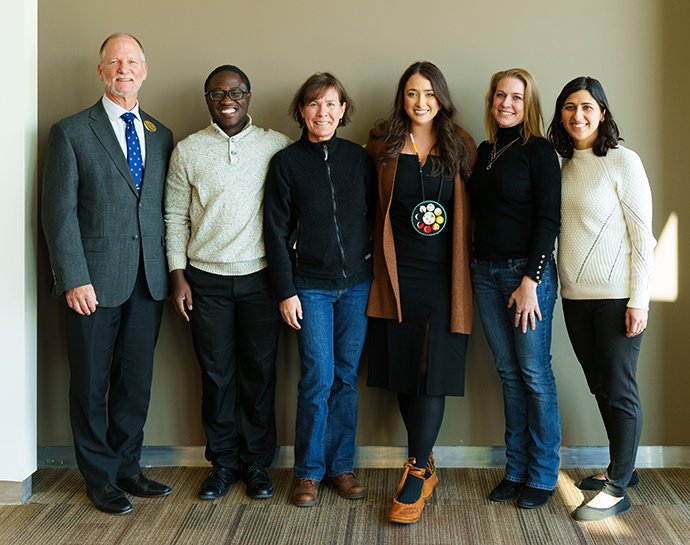 |
Native American Heritage Month helps to increase awareness and provide education about different aspects of Indigenous and Native culture and issues on campus, because, as Dr. Rajaee explains, before significant changes can be made, people need to be informed about the issues. As Oakland continues to educate its population, provide more support for Indigenous students and faculty/staff, and elevate the voices and stories of Natives in our community, Dr. Rajaee encourages non-Natives to listen. “Give time for people who are native to speak first,” she says. “It’s fine to contribute, but don’t do it in a way that might take over or be a detriment to the native folks who want to share.” Maudrie seconded this in the Q+A following her presentation, encouraging those who would like to be involved to be an ally and listen.
Read the Land Acknowledgement Statement online, and learn more about the programs offered through the Department of Public and Environmental Wellness that are empowering students to make a difference.
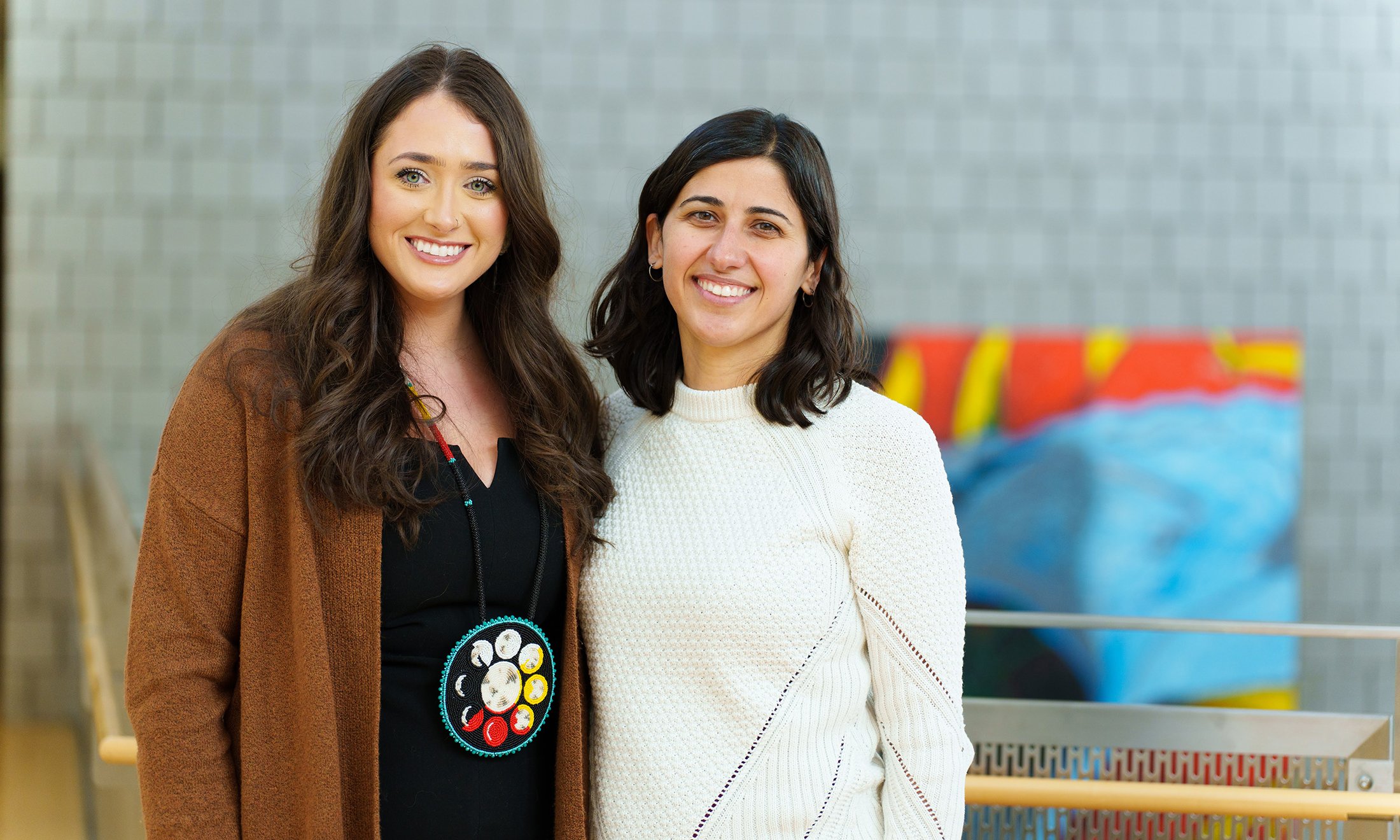
 March 01, 2023
March 01, 2023
 By Jillian Wolf
By Jillian Wolf
